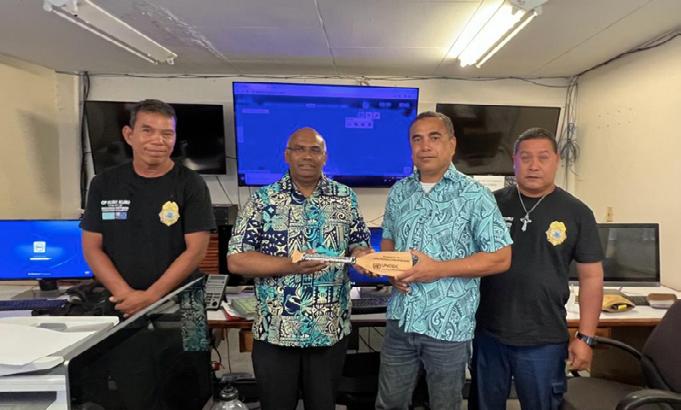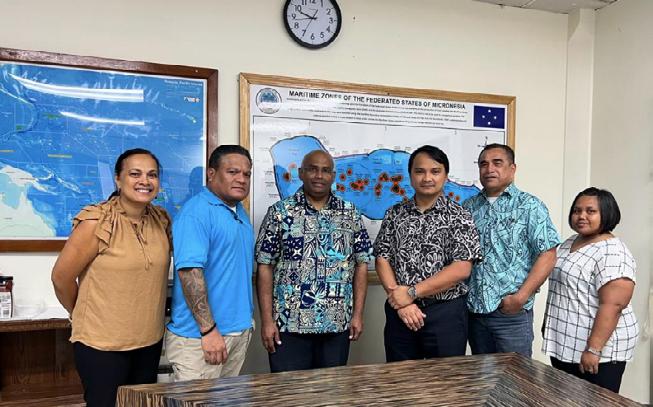
3 minute read
UNODC Global Maritime Crime Programme holds discussions with North Pacific Countries on strengthening maritime law enforcement
United Nations Micronesia
Pacific Island Countries have a vast geographical ocean space that plays a critical role in the national security, economic development, and sustainable livelihoods of these countries. Noting the importance of maritime security in the strategic policy of countries in the Pacific, the Global Maritime Crime Programme (GMCP) of UNODC conducted a visit to several North Pacific countries, FSM, RMI, Nauru and Kiribati, in March 2023 to discuss with relevant authorities on capacity-building needs to strengthen maritime law enforcement.
Advertisement
In the Federated States of Micronesia, Mr. Shanaka Jayasekara - GMCP Regional Programme Coordinator for Southeast Asia and the Pacific met with Acting Secretary of Justice and the Head of the Police Maritime Wing, as well as the Western and Central Pacific Fisheries Commission (WCPFC). He held similar discussions with Acting Police Commissioner and Maritime Police Unit of Kiribati; with Acting Foreign Secretary, Attorney General, Deputy Police Commissioner, and Director of MIMRA in Marshall Islands, and with the Police Commissioner and Police Maritime Unit of Nauru.

GMCP representative also visited and held discussion with the Office of Parties to the Nauru Agreement (PNA) based in Majuro.

GMCP is currently implementing a project to install Terrestrial-based Automatic Identification System (AIS) Receivers in Fiji, Kiribati, Federated States of Micronesia, Marshall Islands, Nauru, Tonga, Tuvalu and Vanuatu. The objective of the project is to develop a low cost and sustainable maritime surveillance capability focused on small craft. At present, there is an excessive dependence on AIS Class A signals collected from space-based satellites for maritime surveillance. However, this is not adequate for monitoring purpose as AIS Class A transponders are used primarily by larger vessels, while small craft including yachts, pleasure craft, fishing vessels and buoys use AIS Class B. The GMCP Project plans to install up to 20 Terrestrial AIS Receivers in 8 Pacific Island Countries that can collect AIS Class B signals and link the data to the national maritime surveillance centre in each capital city.

Besides the discussion on capacity-building needs, part of the visit was also to help identify potential locations to install coastal AIS station for the project. Improved maritime surveillance will help law enforcement agencies in the targeted states monitor their maritime zones more effectively, particularly in detecting illicit activity at sea, intercepting suspicious vessels in a timely manner, and providing more efficient Search and Rescue operations.
The UNODC Global Maritime Crime Programme looks forward to working closely with countries in the Pacific in the time to come to strengthen their overall maritime law enforcement capacity, and further deepening regional cooperation to effectively counter maritime crime in the region.

